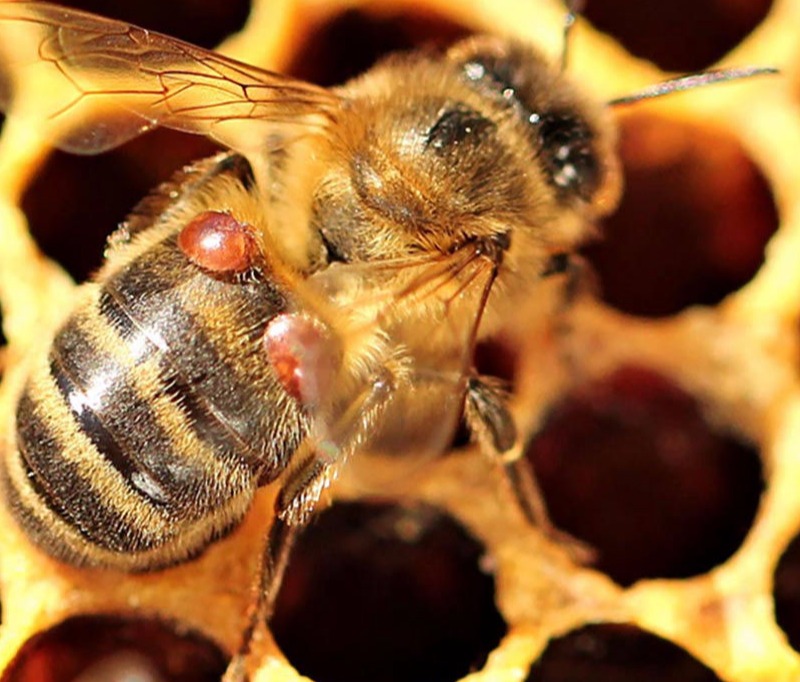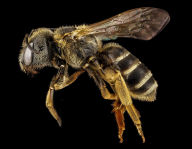Varroa

About Varroa
The mite (or mites) invades the open brood cell shortly before capping and lays its own eggs. It prefers drone brood (see later). The hatched mite will then attach itself and tap into the grub when it hatches. When the young bee emerges it will have its parasite passenger feeding on it. This attachment is a source for many diseases/viruses which are responsible for the collapse of the hive if varroa remains untreated.
Varroa mites double in quantity every four weeks and once your hive hosts more than 1000 mites you will loose your colony. A close look for the visible presence of mites attached to the bees AND for the visible signs of shrunken and deformed wings disease (DWV) will show the problem. Once the infestation gets a hold healthy bees will jump ship and the colony will fail. See the Varroa calculator on BeeBase and monitor the mite drop over several weeks in the spring/summer using and open mesh floor and sticky paper board.
There are several treatments available which should be part of an integrated pest management (IPM) programme.
The key points here are:
· Open floors
· Pre winter treatment
· Monitor varroa drop regularly
· Drone sacrifice early in season
· Treat in season if necessary but beware of residues
· Remove honey in August
· Treat at end of season
There are several different treatments and methods available:
· Thymol based – APIguard etc,
. Oxalic acid
· Polymer based – Apistan etc,
· Formic acid based - MAQs etc,
Please check the web before buying and using these. Size of brood, timing, temperature and residues are important. MAQ strips particularly need to be used extremely carefully.
If you fail to detect varroa when it is present then you will almost certainly lose your colonies. The Association has been giving varroa advice at the Apiary and there is good reference material on the SBA web site, the Moray Bee Dinosaurs' web site and the bee unit of the CSL, see the links here.
